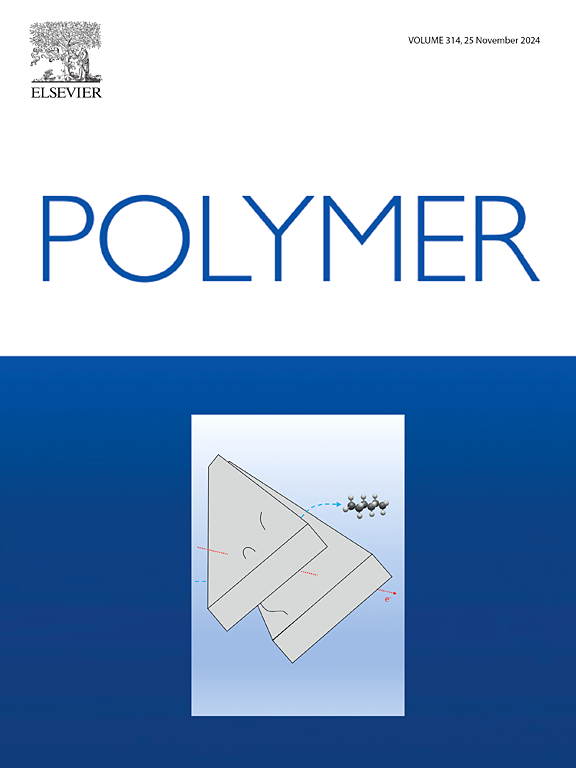Polymer stress relaxation in biaxially stretching-induced crystallization
IF 4.1
2区 化学
Q2 POLYMER SCIENCE
引用次数: 0
Abstract
Biaxially stretching-induced polymer crystallization is a common yet fundamental process in the industrial processing for plastic thinfilms, bottles and foams, in which polymer stress relaxation plays an important role. By means of dynamic Monte Carlo simulations, we have previously investigated the role of polymer stress relaxation in uniaxial stretching-induced crystallization under various strain rates and temperatures. Hereby we extended our parallel study to biaxially stretching-induced crystallization and compared the results also to the cases without stress relaxation. At high temperatures, we observed a significant retardation of onset strains for biaxial crystallization, which could be attributed to the retardation of intermolecular crystal nucleation due to an enhanced stress relaxation among cross-stretching polymers. In consequence, fewer crystallites are generated to yield larger crystallites with a higher content of chain-folding. The more chain-folding favors a continuous biaxial stretching towards ultrathin polyethylene films with thickness down to 12 nm.


双轴拉伸结晶过程中聚合物应力松弛
双轴拉伸诱导聚合物结晶是塑料薄膜、塑料瓶和泡沫工业加工中常见而又基本的工艺,其中聚合物应力松弛起着重要作用。通过动态蒙特卡罗模拟,我们已经研究了不同应变速率和温度下聚合物应力松弛在单轴拉伸诱导结晶中的作用。因此,我们将平行研究扩展到双轴拉伸诱导结晶,并将结果与没有应力松弛的情况进行了比较。在高温下,我们观察到双轴结晶的起始应变有明显的延迟,这可能是由于交叉拉伸聚合物中的应力松弛增强导致分子间晶体成核的延迟。因此,生成的晶体越少,生成的晶体越大,链折叠含量越高。更多的链折叠有利于向厚度低至12纳米的超薄聚乙烯薄膜连续双轴拉伸。
本文章由计算机程序翻译,如有差异,请以英文原文为准。
求助全文
约1分钟内获得全文
求助全文
来源期刊

Polymer
化学-高分子科学
CiteScore
7.90
自引率
8.70%
发文量
959
审稿时长
32 days
期刊介绍:
Polymer is an interdisciplinary journal dedicated to publishing innovative and significant advances in Polymer Physics, Chemistry and Technology. We welcome submissions on polymer hybrids, nanocomposites, characterisation and self-assembly. Polymer also publishes work on the technological application of polymers in energy and optoelectronics.
The main scope is covered but not limited to the following core areas:
Polymer Materials
Nanocomposites and hybrid nanomaterials
Polymer blends, films, fibres, networks and porous materials
Physical Characterization
Characterisation, modelling and simulation* of molecular and materials properties in bulk, solution, and thin films
Polymer Engineering
Advanced multiscale processing methods
Polymer Synthesis, Modification and Self-assembly
Including designer polymer architectures, mechanisms and kinetics, and supramolecular polymerization
Technological Applications
Polymers for energy generation and storage
Polymer membranes for separation technology
Polymers for opto- and microelectronics.
 求助内容:
求助内容: 应助结果提醒方式:
应助结果提醒方式:


